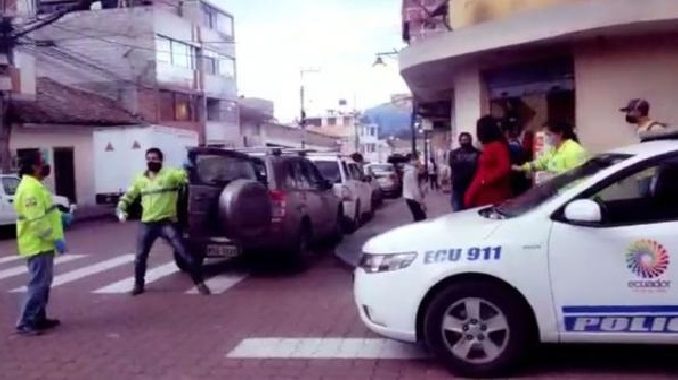
According to the Police, Pichincha, Guayas, El Oro, Manabí and Azuay are the provinces with the most complaints.
During the pandemic, extortions through social networks increased in Quito.
According to the Police, from January to September 1,417 complaints have been reported in the country. Most of the cases were registered in July, in the midst of the Covid-19 emergency and the massive use of technological equipment.
As a result of an operation carried out 15 days ago in a house located in the south of the city, the agents identified photos and intimate videos of 30 people that were stored in a computer, in three cell phones and in two removable memories.
It is presumed that a gang operated in that place that was dedicated to extorting money through social networks. The operation ended with the capture of four people.
The uniformed officers found USD 420 in cash and 19 bank deposits with amounts between USD 150 and USD 1,200.
According to the investigations, this gang created false profiles on social networks to attract the victims. Thus, they sent invitations to young people and after a gradual approach, they requested videos or photos of a sexual nature. When they obtained them they demanded money, in exchange for not making the images public. These cases are known as ‘sextortion’.
The Judicial Police of Quito learned about the case of Melisa a month ago, a 27-year-old girl who contacted an unknown person through Facebook, with whom she had a virtual love relationship and after asking for intimate photos, extorted her.
Police data reveal that the provinces with the most complaints of this type are: Pichincha, Guayas, El Oro, Manabí and Azuay.
Another mechanism used by criminals is that they enter a computer with a computer virus and steal personal data.
The agents also know that criminal gangs execute malicious links through web pages, to infect the victims’ computers.
It turned out that up to USD 6,000 was asked for not disseminating intimate images.
Police Intelligence Personnel mentioned that the leaders of these groups operate in Colombia, Peru, Brazil and in our country.
The Assembly is processing a bill that seeks to increase the penalty to 10 years in prison for cases of digital sexual violence.
Currently, the Police have agreements with Facebook and WhatsApp to know the codes and the location from where malicious messages are sent and thus be able to track down the people dedicated to committing this type of crime.

Be the first to comment